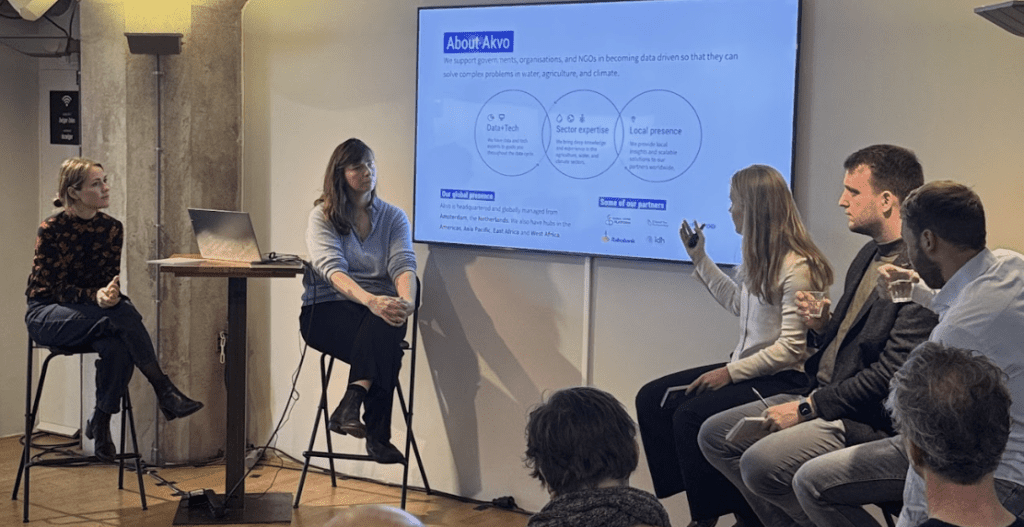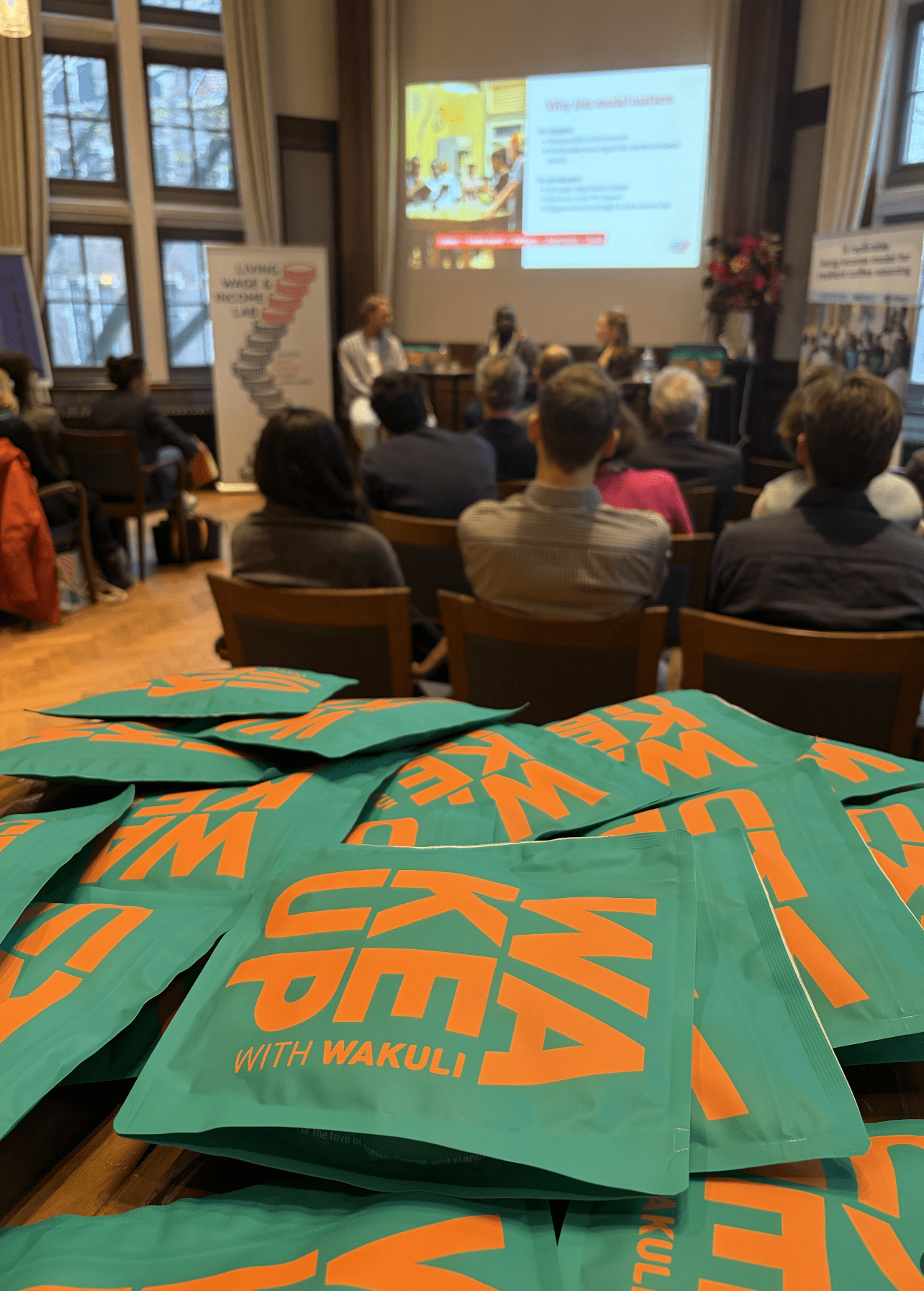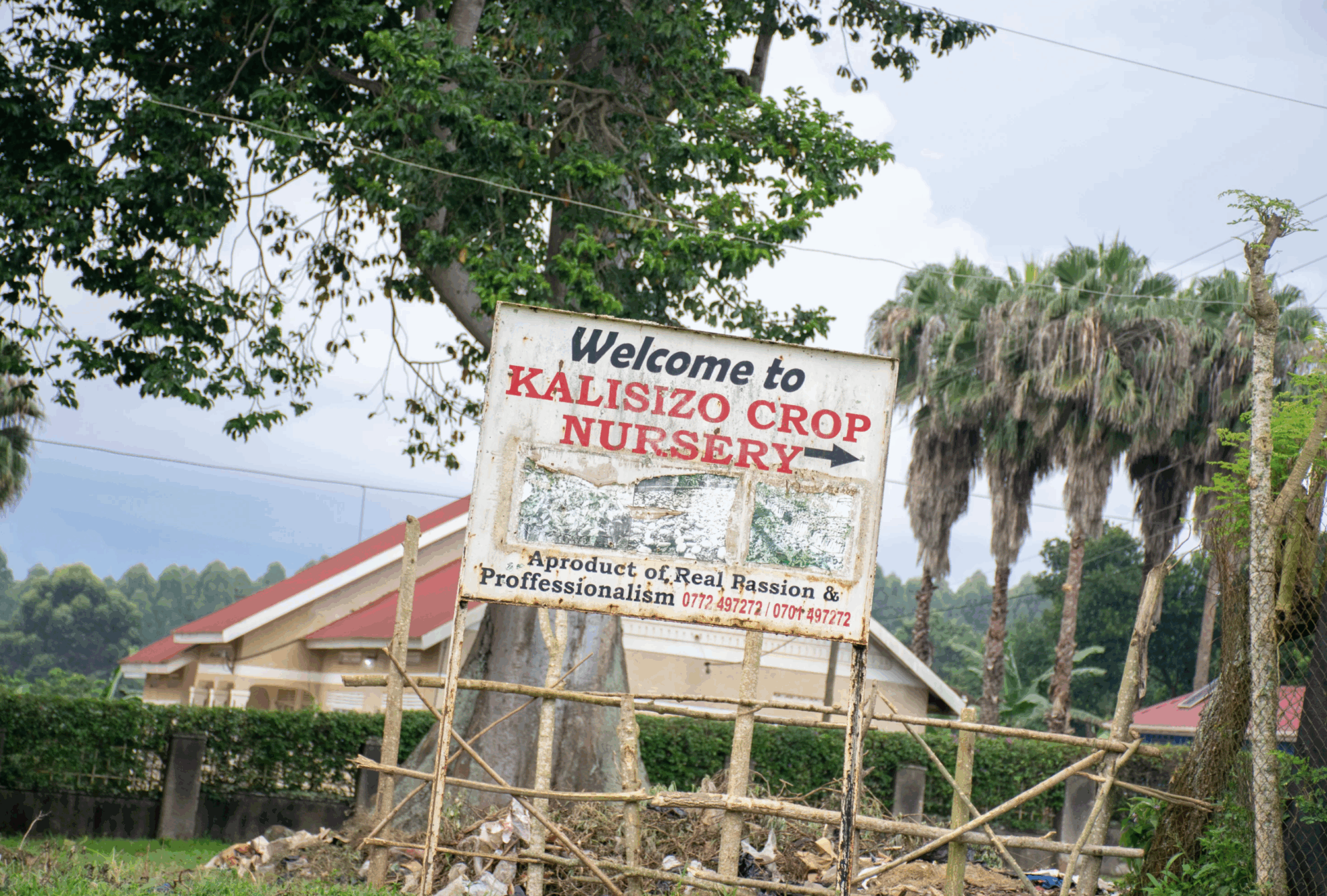2024’s Takeaways and What’s Next
On 17th December, we gathered at Pakhuis De Zwijger in Amsterdam for the final Living Wage & Income Lab session of the year. This session tackled a pressing topic: the Corporate Sustainability Due Diligence Directive (CSDDD) and its implications for fair wages, incomes, and sustainable practices in global supply chains.
The session underscored the need to empower farmers to take an active role in new data assessments, both for upcoming CSDDD requirements but also to inform strategic decision-making. Moderated by Fairfood’s Lotje Kaak, the panel featured Andrea Rusman from Impact Institute, Maurits Appeldoorn from True Price, Johannes Luderich representing Germany’s agency for international cooperation, GIZ GmbH and the Sustainable Agricultural Supply Chains Initiative (SASI), and Jildemarie Brouwer from AKVO. Staying true to tradition, the discussion moved beyond compliance. In the second half, Suzy Fogg from ISEAL facilitated a rich dialogue on inclusive approaches to data sharing, focusing on ensuring that farmers also benefit from the new data requirements placed upon them, fostering greater equity across supply chains.
If you missed the session, here are the key takeaways:
What’s the Deal with the CSDDD?
Approved this year, the Corporate Sustainability Due Diligence Directive elevates living wages and incomes from buzzwords to actionable obligations. Once the directive is transposed—or, in simpler English, adopted—into national laws, member states will outline how companies should identify and address gaps as part of their due diligence. Big players must comply by July 2027, while smaller organisations have until 2029 – but starting early is essential.
And if you are not sure where to begin, we suggest you explore the ALIGN tool, a guidance platform developed by Fairfood, Rainforest Alliance, and the Sustainable Food Lab, funded by GIZ at the request of Lab participants. This repository compiles credible benchmarks, best practices, and practical examples for addressing living wage and income gaps.
Data in Action
The AKVO team, a key data partner for organisations active in agricultural commodities, shared insights from a case study in Honduras developed in collaboration with Fairfood and Heifer International. Through a joint Living Income Commodity Strategy, the trio recently launched an open-source methodology to calculate living income pricing gaps and identify inefficiencies that hinder progress – which can be found here. During the session, we looked into initial findings from a project with Molinos de Honduras and Volcafe, who are leveraging cost and yield data to create actionable recommendations for boosting farmer incomes and improving production efficiency.
The True Price Approach
The True Price methodology was another highlight of the session. Through examples from banana supply chains in the Dominican Republic and Peru, we discussed how they integrate social and environmental costs into product pricing. While many assume this is used for advocacy in the Global North, the cost data also equip farmers and buyers with the insights needed to address often-overlooked costs.
Collaboration is Key
Collaboration emerged as a central theme. GIZ’s Due Diligence Fund illustrated the importance of government investment in fostering partnerships. German funding for innovative projects highlighted the value of multi-stakeholder initiatives and trust-based partnerships in global supply chains. These collaborations, even those supported by small grants, enable the public and private sectors to develop and test solutions that can scale to meet farmers’ needs while enhancing sustainability. To learn more about this specific fund, which in 2025 will go to its fourth round, visit their website, where a presentation and Q&A are available.

Living Income Community of Practice Workshop Highlights
For those who couldn’t attend the annual Living Income Community of Practice workshop, hosted in November in Colombia, ISEAL has compiled the key highlights from this year’s discussions. A presentation is available on the LICoP website—access it here. Here are some of the points we delve into together:
Living Income and Data Collection
- Context-specific solutions are vital for addressing income gaps: Accurate data, often missing due to farmers’ lack of cost-tracking tools, is critical.
- Farmer field books can help monitor costs, but financial exclusion and mobile payment complexities remain challenges; EU regulations like EUDR and CSDDD add to the complexity.
Building Trust and Information Sharing
- Greater cooperation, transparency, and inclusion of producers are essential: Producer organisations should act as focal points for information sharing and data ownership.
- There’s a shift towards simplified, meaningful criteria (e.g., regenerative agriculture).
Data Management and Future Challenges
- Cooperatives are becoming more engaged with data management and governance.
- Building trust to gather labour data and ensuring future farmers’ sustainability are critical concerns.
Got thoughts on these points? Help us shape 2025’s agenda by filling out this survey!
Looking Ahead
Save the date! In February, we meet again during the Chocoa event on February 5th, in Amsterdam. Subscribe to our newsletter for invitations and updates on upcoming sessions, resources, and insights.


